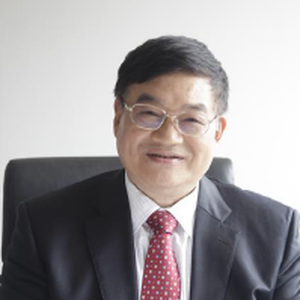
Liu Bao Yan
Chief Research OfficerAcademician of International Eurasian Academy of Sciences. Chief Researcher of China Academy of Chinese Medical Science (CACMS), President of the World Federation of Acupuncture-Moxibustion Societies (WFAS), President of China Association of Acupuncture-Moxibustion (CAAM), Director of TCM Data Center of CACMS, Traditional Medicine Consultant of World Health Organization (WHO), Deputy director of Clinical Epidemiology and Evidence-based Medicine Specialized Committee of China Medical Association, Member of the Standing Committee of Evidence-based Medicine Specialized Committee of Chinese Medical Doctor Association, Director of National Technical Committee on Acupuncture and Moxibustion of Standardization Administration of China, Director of Clinical Epidemiology Unit (CEU) of CACMS of INCLEN, Vice Chairman of Chinese Health Information Standardization Society, Editor-in-Chief of Chinese Acupuncture & Moxibustion.
Prof. Liu Bao Yan has been committed to researches on clinical evaluation methods and techniques of TCM for many years, and put forward a clinical research paradigm with characteristics of TCM, and has done a lot of fruitful work for the clinical research of TCM. At the same time, the research on clinical demonstration, standardization and registry and others of acupuncture and moxibustion have been carried out. He led to organize more than 20 major national subjects, including 973 Program, 863 Program, National Sci-Tech Support Plan, Natural Science Foundation of China, etc. He served as the chief scientist in 973 Program. His researches on prevention and control of major infectious diseases such as TCM clinical research methodology, acupuncture and moxibustion standardization research, case registry research on acupuncture and moxibustion, "prevention first" of TCM, Chinese and Western medicine prevention and treatment of SARS and influenza A (H1N1), TCM prevention and treatment of influenza A(H1N1), hand, foot and mouth disease and epidemic encephalitis B as well as AIDS and viral hepatitis have got prominent results. Prof. Liu won 3 second prizes of National Scientific and Technological Progress and 9 first or second prizes of Provincial Scientific and Technological Progress. In addition, he published more than 300 academic papers (SCI includes 67, the total impact factor is 104) and 10 books.
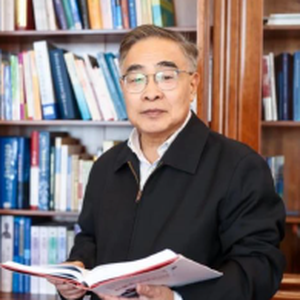
Zhang Bo Li
AcademicianZhang Bo li, President Emeritus of Tianjin University of Traditional Chinese Medicine, President Emeritus of China Academy of Chinese Medical Sciences, Director of the Medical and Health Department of the Chinese Academy of Engineering, recipient of the national honorary title "the People's Hero". Deputy chief technical officer of the national sci-tech project on major new drug development, leader of the national key discipline-internal medicine of traditional Chinese medicine, director of the National Key Laboratory of Component Traditional Chinese Medicinals, director of Haihe Laboratory of modern traditional Chinese medicine, deputy director of the 11th National Pharmacopoeia Committee, deputy director of the medical education expert committee of the Ministry of Education, and deputy to the 11th to 13th National People's Congress. A national famous doctor and master of traditional Chinese medicine.
He has long been engaged in the prevention and treatment of cardiovascular and cerebrovascular diseases and the modernization of traditional Chinese medicine. He studied the objectification of tongue diagnosis of traditional Chinese medicine and carried out systematic research on vascular dementia (VD). He identified the dynamic correlation between symptoms after and precursor to stroke and established a comprehensive treatment protocol. He founded the method of cerebrospinal fluid pharmacology which revealed protective mechanism of traditional Chinese medicine on nerve cells. He established the way and key technology of developing modern traditional Chinese medicine products by the combination of composition and distribution. He was the first to complete a large-scale evidence-based study on the secondary prevention of coronary heart disease by traditional Chinese medicine, and founded and a series of evidence-based evaluation methods of traditional Chinese medicine. He has won the first, second and third prizes of the National Science and Technology Progress Awards, The Ho Leung Ho Lee Science and Technology Progress Award, International Contribution Award of Traditional Chinese Medicine, Wu Jieping Prize for Medicine, the first prize of National Teaching Achievement Award, honorary title of “national model of teaching and educating people”, the special award of the national excellent teaching material, and the 13th Guanghua Engineering Science and Technology Award.
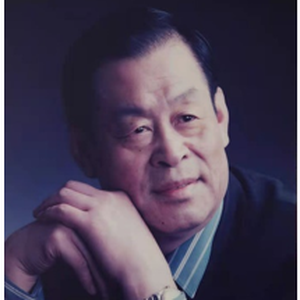
Shi Xue Min
AcademicianShi Xue Min, representative inheritor of acupuncture and moxibustion of national intangible cultural heritage project, professor, chief physician, PhD supervisor, academician of Chinese Academy of Engineering, National Master of TCM. The honorary president of the First Affiliated Hospital of Tianjin University of Traditional Chinese Medicine, the world-famous expert in TCM and acupuncture and moxibustion, founder of modern Chinese acupuncture and moxibustion, winner of National Outstanding Contribution Award of Traditional Chinese Medicine, winner of the honorary title of "China's Good Doctor" and "Most Beautiful Doctor" by National Health Commission of the People' Republic of China. The first "Member of Academician of the Chinese Academy of Medical Sciences", and the "Member of Academician of the China Academy of Chinese Medical Sciences", director of the National Clinical Research Center for Chinese Medicine Acupuncture and Moxibustion.
Professor Shi Xue Min has been engaged in clinical, educational and scientific research of Traditional Chinese medicine for 60 years. He is the leader of acupuncture in the First Affiliated Hospital of Tianjin University of Traditional Chinese medicine. He intensively studied the ancient books, combined with modern medical theories, gave a detailed explanation of the symptoms of the twelve meridians, and made a summary of the "diseases caused by disorder of this channel" and “diseases of viscera connecting with this channel". In the early 1970s, he established Xingnao Kaiqiao acupuncture method and had set up a new way to treat stroke. Founded in the early 1980s, “acupuncture manipulation measurement” has filled the gap in the development of acupuncture and moxibustion science and has been widely used in the treatment of a variety of refractory and miscellaneous diseases. He has invented "Naoxueshuan Tablet", " Danqi Piantan Capsule" and other drugs, and then combined with " Awakening Brain" method, created "stroke unit" therapy, which has created a new idea for the treatment of cerebrovascular diseases. Up to now, he has host 43 scientific research projects, including the National 973 Project, among which he has won 1 National Science and Technology Progress Award, 33 Provincial Science and Technology Progress Award ( times),3 State Education Commission and Tianjin Teaching Achievement Award ,and 6 national patents. He has trained more than 300 masters, PhD and post-doctoral at home and broad, published more than 100 papers, and published 55 books. Served as a guest professor of the Chinese Academy of Traditional Medicine in many countries, and conducted scientific research cooperation with many countries, and contributed to the globalization of Chinese medicine and acupuncture.
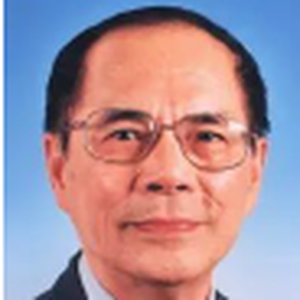
Han Ji Sheng
AcademicianHan Ji Sheng, neurophysiologist, academician of the Chinese Academy of Sciences, professor and doctoral supervisor of the College of Neurobiology of Peking University, and honorary director of the Institute of Neuroscience of Peking University. Since 1965, he has been engaged in the research on the mechanism of acupuncture analgesia. He first clarified the time and space distribution law of analgesia caused by acupuncture at an acupoint, and then proved that acupuncture could promote the secretion of 5-hydroxytryptamine, endorphin and other chemical substances with analgesic effect in the nervous system. He also found that changing the frequency of electrical stimulation at acupoints could cause the release of certain neuropeptides in the brain, and if stimulation lasted for 2 hours and more the brain would instead produce CCK and other anti analgesic substances. The therapeutic effect of acupuncture depends on the quantity and relative balance of analgesic and anti analgesic substances. According to this principle, a nerve stimulator device was made which could achieve analgesic and antispasmodic effects, and could also be used in the treatment of heroin addiction.
He has won more than 20 awards, including the second and third prizes of the National Natural Science Awards, the third prize of the National Science and Technology Progress Awards, the first prizes of the Ministry of Health and the Ministry of Education, Guanghua Science and Technology Progress Award, The Ho Leung Ho Lee Science and Technology Award, the first Hong Kong’s Grand Bauhinia Medal Award, and European acupuncture awards. He was also granted the outstanding neuroscientist scholarship jointly by the International Brain Research Organization and the Neuroscience Foundation of USA, being the only recipient from mainland China. He has also been the grantee of National Institute of Health, USA for the study of neurobiology of acupuncture analgesia for 12 consecutive years. His findings resulted in the design and manufacturing of a device named “Han’s acupoint nerve stimulator” (HANS), which has greatly promoted the use of acupuncture in the world. He is also an Adviser of the World Health Organization and National Institute of Health USA, and an International Academician of Royal Academy of Sciences Lund, Sweden. Professor Han published more than 400 scientific papers in peer-reviewed journals since 1979.
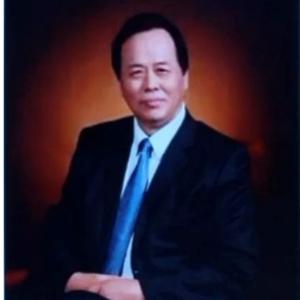
Tong Xiao Lin
AcademicianTong Xiao Lin, expert on internal medicine of traditional Chinese medicine, academician of the Chinese Academy of Sciences, Chief Researcher of the China Academy of Chinese Medical Sciences, head of the national traditional Chinese medicine expert group for treating COVID-19 cases, chief physician and doctoral supervisor. Chief Scientist of national major basic research projects, leader of the endocrinology discipline – a key discipline recognized by the National Administration of Traditional Chinese Medicine. Winner of the second prize of the National Science and Technology Progress Awards, and recipient of the special allowance of the State Council.
He has been engaged in clinical treatment, scientific research and teaching of diabetes and diabetes complications. He pioneered the method of “dispersing depression and clearing heat" to treat early and mid-term diabetes, which solved the historical problem that “blood sugar could not be reduced solely by traditional Chinese medicine“. He established the collateral disease theory to guide the treatment of diabetes complications, and formed a diagnosis and treatment system of traditional Chines medicine covering from pre diabetes, early and mid-term diabetes through to complication period. In December 2020, he was awarded the honorary title of "the Most Beautiful Scientific and Technological Worker" by six departments including the Publicity Department of CPC Central Committee, and the China Association for Science and Technology.
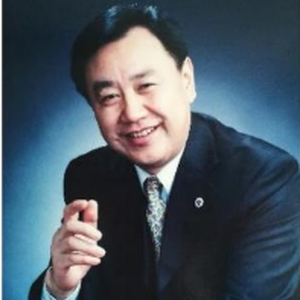
Fan Dai Ming
AcademicianProfessor Fan Dai Ming is the President of China Anti-Cancer Association, President of Asian Pacific Association of Gastroenterology, and the board member of the Union for International Cancer Control. He used to be the Vice President and the Member of Chinese Academy of Engineering, former President of Fourth Military Medical University. He has a long-standing interest in both clinical and basic research of digestive diseases, and has been committed to the theoretical research and clinical practice of Holistic Integrative Medicine.
He has obtained a lot of national grants, including National Hi-tech Research and Development Program of China (863 Program), National Basic Research Program of China (973 Program) and Key Program of National Natural Science Fund, etc. He has won the first, second and third-class prizes of National Science and Technology Progress Awards respectively, and a third-class prize of National Technology Invention Awards. He was the first awardee of the Prize “French National Academy of Medicine-Servier”.
As an editor-in-chief he has authored 23 books on gastroenterology and oncology. As the first or corresponding author he has published more than six hundred and seventy papers on the international journals (index by SCI), such as Nat Rev Gastroenterol Hepatol, Nat Clin Pract Oncol, Lancet, Gut, etc. He has become the editor or associate editor for 12 international medical journals.
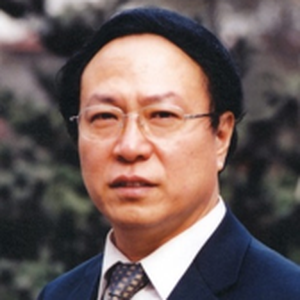
Wu Yi Ling
AcademicianWu Yi Ling is a famous TCM expert on cardiovascular disease, founder and leader of the subject of TCM collateral disease theory, professor, as well as doctoral supervisor, serving as the Academician of the Chinese Academy of Engineering, Director of State Key Laboratory of Collateral Disease Research and Innovative Traditional Chinese Medicine, Deputy Director of the Expert Committee of the National Center for Cardiovascular Diseases, Member of the Chinese Academy of Medical Sciences, Director of the Key Laboratory of Collateral Diseases of the National Administration of Traditional Chinese Medicine, Honorary President of the Chinese Association of Integrative Medicine, Honorary Vice President of the China Association of Chinese Medicine, Vice President of the World Federation of Chinese Medicine Societies, and Honorary Director of the China Association of Chinese Medicine Collateral Disease Branch.
He has pioneered to establish the theoretical framework for “treatment of collateral disease” through inheritance and innovation, systematically constructed the "vessel-collateral theory" and "qi-collateral theory", established a new subject of TCM collateral disease theory, and explore a new way to treat cardiovascular diseases guided by the collateral disease theory. He has won the first prize of National Science & Technology Progress Awards once, second prize of National Technology Invention Awards once, second prizes of National Science & Technology Progress Awards for 4 times, Ho Leung Ho Lee award and many provincial and ministerial awards. He is the chief editor of Collateral Disease Theory, Collateral Theory, Qi Collaterals Theory, Body Needs Management and other monographs, among which the Collateral Disease Theory and Vessel Collateral Theory won the first prize of academic works of China Association of Chinese Medicine respectively. He also serves as the chief editor the Collateral Disease Theory, a new century innovative textbook for TCM colleges and universities, which supports the classes in more than 40 medical colleges and universities, and he has founded 3 specialized collateral disease committees and 29 provincial collateral disease committees. In addition, he has created an integrated development model of "Theory-Clinic-New Drug" and made contributions to promoting the academic development and modernization of TCM.
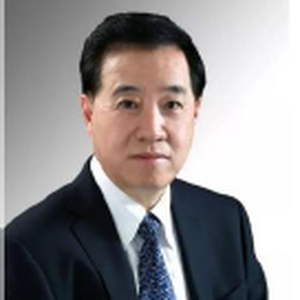
Prof. Shen Yuan Dong
ProfessorProf. Shen Yuan Dong, Chairperson of the Technical Committee of Traditional Chinese Medicine (TC249), International Organization for Standardization.
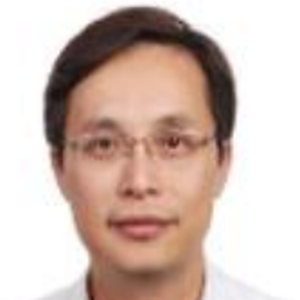
Huang Lu Qi
Vice Commissioner of TCM, AcademicianHuang Lu Qi is the Vice Commissioner of China’s National Administration of Traditional Chinese Medicine, President and Dean of the Postgraduate School of China Academy of Chinese Medical Sciences. Member of the Standing Committee of the 13th National Committee of the Chinese People's Political Consultative Conference, one of the first session of special supervisors of the National Supervisory Commission, Vice Chairman of the 10th National Committee of the China Association for Science and Technology, and a deputy to the 15th People's Congress of Beijing Municipality.
Academician of Chinese Academy of Engineering. As the head of the expert guiding group for the pilot national survey of traditional Chinese medicine resources, he took the lead in preparing the Technical Specifications for National Survey of Traditional Chinese Medicine Resources and organized the fourth national survey. He put forward and developed the theory of "molecular pharmacognosy" and the formation of genuine medicinal materials, established Five Protection Modes of rare and endangered traditional Chinese medicine resources as well as new identification methods of Traditional Chinese Medicinals, making the molecular identification method included in the national pharmacopoeia for the first time. He had won 4 second prizes of National Science and Technology Progress Awards.
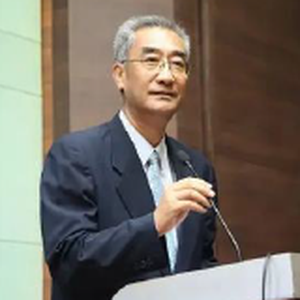
Dr. Zhang Qi
CoordinatorDr. Zhang Qi, Coordinator of the Traditional, Complementary and Integrative Medicine Unit, World Health Organization.